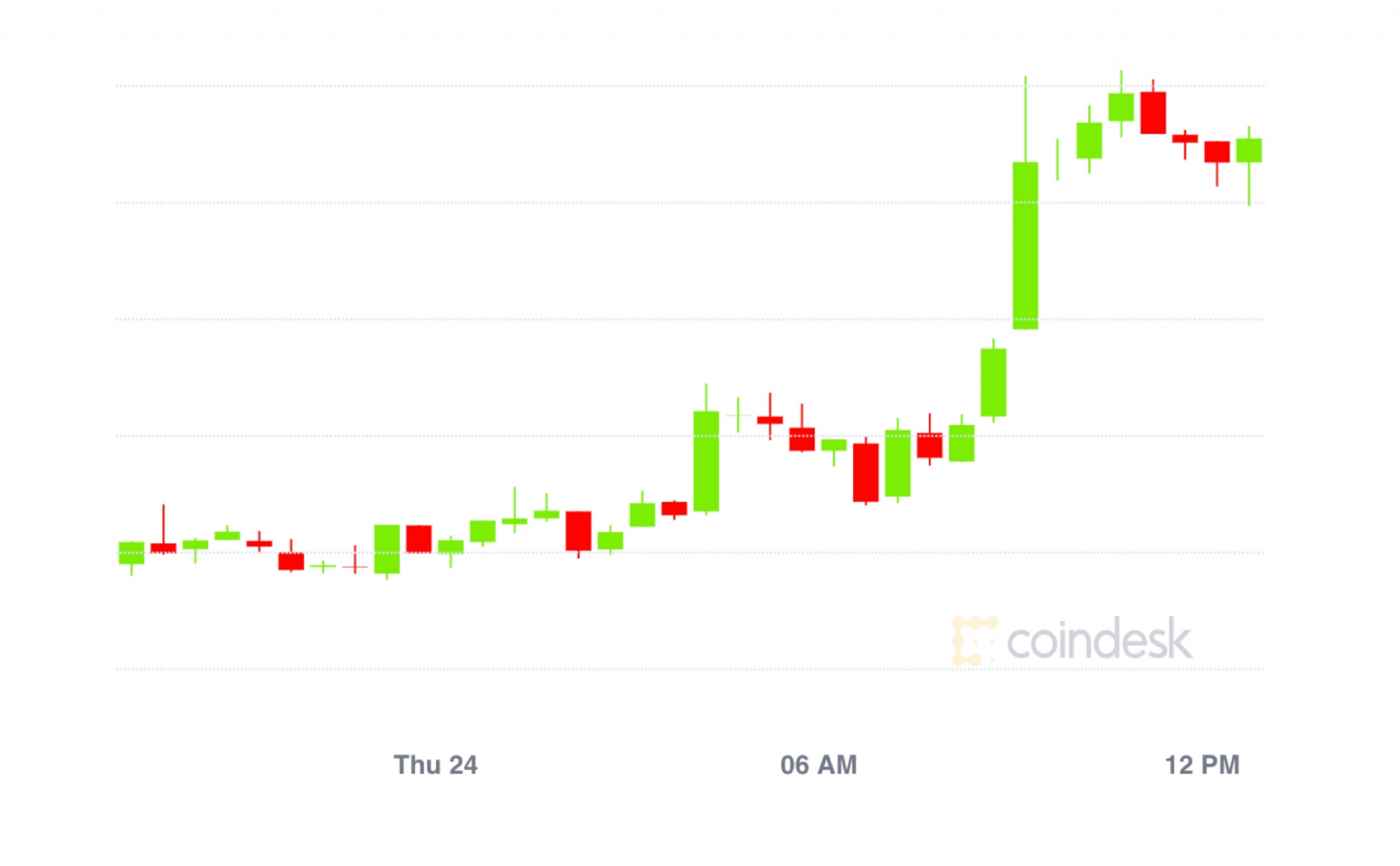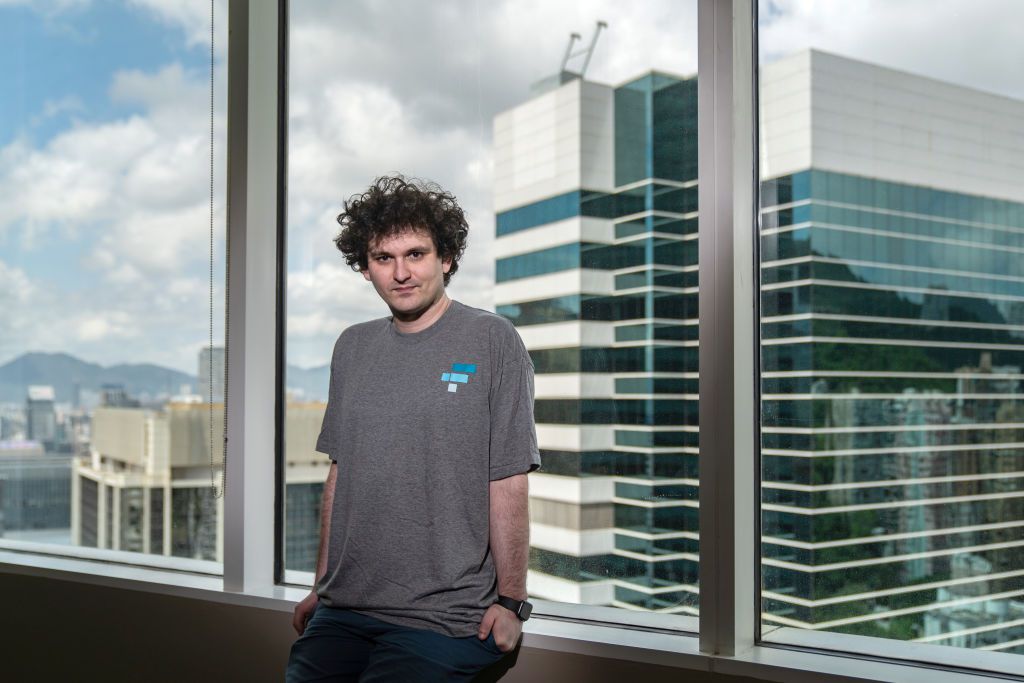Binance CEO Zhao Calls CFTC Suit an ‘Incomplete Recitation of Facts’
Join the most important conversation in crypto and Web3 taking place in Austin, Texas, April 26-28.
:format(jpg)/www.coindesk.com/resizer/QDru0AHh-23WOqO7wvpu2w3XILg=/arc-photo-coindesk/arc2-prod/public/OMCWLR36GNBJTCC525FU7Y5I6E.jpg)
James Rubin is CoinDesk’s U.S. news editor based on the West Coast.
Join the most important conversation in crypto and Web3 taking place in Austin, Texas, April 26-28.
In a blog post Monday, Binance CEO Changpeng Zhao said that a lawsuit filed earlier in the day contained “an incomplete recitation of facts.”
“We do not agree with the characterization of many of the issues alleged in the complaint,” Zhao said, also calling the complaint “unexpected and disappointing.”
The lawsuit, filed in the U.S. District Court for the Northern District of Illinois, alleges that Binance operated a derivatives trading operation in the U.S., offering trades for cryptocurrencies including bitcoin (BTC), ether (ETH), litecoin (LTC), tether (USDT) and Binance USD (BUSD), which the suit referred to as commodities. The suit also alleges that the company, under Zhao’s leadership, directed its employees to spoof their locations through the use of virtual private networks.
Zhao touted the exchange giant’s compliance technology, including its know-your-customer program.
He wrote that the exchange had 750 people in its compliance teams, “many with prior law enforcement and regulatory agency backgrounds,” and noted that the company had 16 licenses and registrations worldwide.
According to the CFTC, the exchange, which has a U.S. affiliate in Binance.US, created a system to hide its true reach and operations.
In a press release, CFTC Chief Counsel Gretchen Lowe called Binance’s actions “willful evasion of U.S. law,” pointing to internal chats and emails.
Moreover, the suit alleged, Binance directed customers in the U.S. to use a variety of methods to evade restrictions on U.S-based customers. “Binance has instructed U.S. customers to evade such controls by using [virtual privacy networks] to conceal their true location,” the suit alleges.
In his blog post, Zhao highlighted Binance’s 90-day, no-day-trading policy, writing that employees “are not allowed to sell a coin within 90 days of” their most recent purchases, or the reverse. “This is to prevent any employees from actively trading. We also prohibit our employees from trading in Futures,” Zhao wrote.
In listing the CEO as a defendant, the CFTC alleges that Zhao was the “direct or indirect owner of entities that have engaged in proprietary trading activity on the Binance platform,” and was likewise the “direct or indirect owner of approximately 300 separate Binance accounts” that engaged in prop trading on the Binance trading platform.
Zhao wrote that he has two accounts at Binance, one for his Binance Card and the other for his crypto holdings. “I eat our own dog food and store my crypto on Binance.com,” he wrote, adding that he occasionally converted crypto to pay “for personal expenses or for the Card.”
DISCLOSURE
Please note that our
privacy policy,
terms of use,
cookies,
and
do not sell my personal information
has been updated
.
The leader in news and information on cryptocurrency, digital assets and the future of money, CoinDesk is a media outlet that strives for the highest journalistic standards and abides by a
strict set of editorial policies.
CoinDesk is an independent operating subsidiary of
Digital Currency Group,
which invests in
cryptocurrencies
and blockchain
startups.
As part of their compensation, certain CoinDesk employees, including editorial employees, may receive exposure to DCG equity in the form of
stock appreciation rights,
which vest over a multi-year period. CoinDesk journalists are not allowed to purchase stock outright in DCG
.
:format(jpg)/www.coindesk.com/resizer/QDru0AHh-23WOqO7wvpu2w3XILg=/arc-photo-coindesk/arc2-prod/public/OMCWLR36GNBJTCC525FU7Y5I6E.jpg)
James Rubin is CoinDesk’s U.S. news editor based on the West Coast.
Learn more about Consensus 2023, CoinDesk’s longest-running and most influential event that brings together all sides of crypto, blockchain and Web3. Head to consensus.coindesk.com to register and buy your pass now.
:format(jpg)/www.coindesk.com/resizer/QDru0AHh-23WOqO7wvpu2w3XILg=/arc-photo-coindesk/arc2-prod/public/OMCWLR36GNBJTCC525FU7Y5I6E.jpg)
James Rubin is CoinDesk’s U.S. news editor based on the West Coast.









